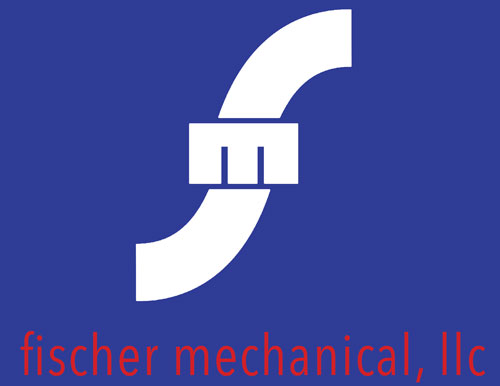Rooftop Units
Fischer Mechanical can install rooftop units on new constructed buildings, and also replace rooftop units on existing buildings. The personnel at Fischer Mechanical are trained Pipefitters who have participated in a five-year apprenticeship. There is a lot of safety issues to be concerned about when setting a rooftop unit or replacing an old rooftop unit. You can feel safe knowing highly trained craftsman are working on your rooftop unit.
Rooftop Unit:
Explanation of a Rooftop Unit:
The Air Conditioning and Refrigeration Institute (ARI) states that a unitary air conditioner consists of one or more factory – made assemblies that normally include: an evaporator or cooling coil, evaporator fan, compressor, condenser combination, and may have a heating element.
Packaged Rooftop Units:
The complete air conditioner is contained in one package. The sizes vary, but typically start from 1.5 ton to over 105 tons cooling capacity.
The Function of a packaged rooftop unit is to provide air conditioning, humidity control, air circulation, exhaust energy recovery, filtration, and heating.
Heat Pump Rooftop Units:
A heat pump rooftop’s refrigeration cycle provides both cooling and reverse cycle heating. When the heat pump is in heat mode a four-way valve allows the refrigerant to flow in reverse. This reverse flow allows the refrigerant to remove the heat from the outdoors and transfer that heat indoors.
The heat pump does not heat efficiently in very cold outdoor weather. The building may require additional heaters.
Year – Round Air Conditioner Rooftop Units:
A Year-round rooftop unit is a package unit with a gas heating section. Most of the time natural gas is used but a unit can also use propane. The unit runs in all seasons and can heat or cool the building.
Modular Rooftop Units:
Most of rooftop units tend to be modular, this means that a Service Pipefitter can add or take away components of the unit. If a building owner plans on adding on space to their building in the future, the unit is capable of adding more components. Modular units are easily adjusted to the needs and wants of the owner’s building.
Advantages of Rooftop Units:
Many rooftop units are flexible and are modular. The roof allows a lot of room for systems to be worked on or changed over. Since almost all rooftop units are modular they can be changed out and upgraded to suit the building they are operating on.
Most of the HVAC equipment required to operate can be an eyesore. Buildings are designed with many characteristics and features that show off the beauty of the architectural design. If the HVAC equipment needs to be installed in front of the building this could ruin the attended architectural design.
By installing on the roof of a building, the mechanical equipment has less of a chance of being damaged by people. Routine maintenance and operations may easily damage the equipment and could be expensive to repair.
Many buildings that require rooftop units may lack the required space for the mechanical equipment. The equipment may be loud and may disrupt the people in the building.


